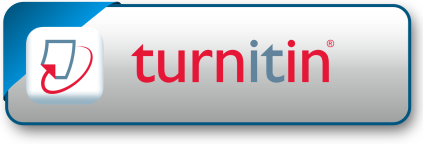IMPLEMENTASI PERATURAN GUBERNUR PROVINSI DAERAH KHUSUS IBU KOTA JAKARTA NOMOR 22 TAHUN 2019 TENTANG GERAKAN PEMBERDAYAAN DAN KESEJAHTERAAN KELUARGA
DOI:
https://doi.org/10.24853/swatantra.21.2.213-220Keywords:
Implementasi, Kebijakan Publik, PKKAbstract
Gerakan Pemberdayaan dan Kesejahteraan Keluarga (PKK) sebagai mitra pemerintah mempunyai tugas untuk pemenuhan kebutuhan dasar sehingga terwujudnya pemberdayaan dan kesejahteraan keluarga. PKK bertugas untuk merangkul dan membina masyarakat, sehingga semua kalangan masyarakat dapat merasakan hasil dari pembangunan. Tim Penggerak Pemberdayaan dan Kesejahteraan Keluarga (TP PKK) merupakan organisasi yang bergerak dalam bidang pemberdayaan keluarga dan pembangunan masyarakat, mulai dari tingkat provinsi hingga kelompok dasawisma yang pengelolaanya dari, oleh dan untuk masyarakat. Program dan kegiatan Tim Penggerak PKK Provinsi DKI Jakarta disesuaikan dengan kondisi dan kebutuhan masyarakat serta sejalan dengan program Pemerintah. Tim Penggerak PKK Provinsi DKI Jakarta sebagai mitra strategis pemerintah Provinsi DKI Jakarta memiliki program- program prioritas yang manfaatnya diharapkan bisa langsung dirasakan oleh seluruh lapisan masyarakat. Penelitian ini merupakan penelitian kualitatif dengan teknik analisis deskriptif dengan kajian kepustakaan (library research). Dalam implementasi program PKK yang menggerakkan setiap orangtua untuk jadi orangtua pembelajar dan orang tua hebat. Hal ini sejalan dengan salah satu fokus program / kegiatan PKK. Pencapaian Program PKK dapat dilihat banyaknya perkembangan yang terwujud dari progam PKK DKI dalam mensejahterahkan keluarga.References
Marhayani Dkk. (2018). Pengaruh Kepemimpinan Dan Budaya Organisasi Terhadap Kinerja Kader Tp Pkk . Journal Of Economics And Business Aseanomics (JEBA), 20-37.
Agustino, L. (2008). Dasar-Dasar Kebijakan Publik. Bandung: Alfabeta.
Asriandi Desi. (2017). Peran PKK Di Dalam Pemberdayaan Perempuan Di Desa Muara Bengkal Ilir Kecamatan Muara Bengkal Kabupaten Kutai Timur,. Ejournal.Ip.Fisipunmul.Ac.Id.
Edi, S. (2004). Membangun Masyarakat Memberdayakan Rakyat. Bandung: Refika Aditama.
Fadjriah Hapsari Dkk. (2017). Efektivitas Kelembagaan Sosial Masyarakat Dalam Pemberdayaan Wanita Dan Keluarga Di Kelurahan Uarga Di Kelurahan. Journal Of Applied Business And Economics, 266-276.
Hadiningsih, R. R. (2020). Pemberdayaan Perempuan Melalui Kelompok Pkk Studi Pada Aktivis Pkk Di Dasawisma Dahlia,Kelurahan Ragunan,Jakarta Selatan. Skripsi, 1-131.
Handoyo, E. (2012). Kebijakan Publik. Semarang: Widya Karya.
Hanjar. (2016). Kepemimpinan Strategik. Jakarta: Kementerian Pertahanan RI Badan Pendidikan Dan Pelatihan.
Indarwati, R. (2017). Strategi Pelaksanaan Tim Pemberdayaan Kesejahteraan Keluarga (PKK) Dalam Meningkatkan Pemberdayaan Perempuandi Kecamatan Samarinda Utara. Jurnal Ilmu Pemerintahan, 861-872.
Ludovikus Bomans Wadu. (2018). Faktor Pendukung Dan Penghambat Pembinaan Kesejahteraan Keluarga (PKK) Dalam Meningkatkan Keterampilan Warga Negara Melalui Program Pokok PKK. Jurnal Inspirasi Pendidikan, 62-71.
Mardikanto Dan Soebiato. (2015). Pemberdayaan Masyarakat. Bandung: Alfabeta.
Pathony, T. (2019). Proses Pemberdayaan Masyarakat Melalui Gerakan Pemberdayaan Dan Kesejahteraan Keluarga (PKK) Di Kabupaten Subang. International Journal Of Demos, 262-289.
Pemberdayaan Kesejahteraan Keluarga. (2022, Febuari 04). Ketua TP PKK Provinsi DKI Jakarta. Diambil Kembali Dari Https://Pkk.Jakarta.Go.Id/: Https://Pkk.Jakarta.Go.Id/Ketua-Tp-Pkk/
Soetomo. (2011). Pemberdayaan Masyarakat. Yogyakarta: Pustaka Pelajar.
Sulistiyani. (2004). Kemitraan Dan Model-Model Pemberdayaan. Yogyakarta: Gava Media.
Triyatna, T. (2012). Elaksanaan Koordinasi Oleh Kepala Desa Dalam Upaya Mencapai Efetivitas Penyusunan Program Pembangunan Di Desa Ranji Wetan Kecamatan Kasokandel Kabupaten Majalengka. Jurnal Ilmu Administrasi Negara. Jurnal Ilmu Administrasi Negara. Volume V No 2 Juli - Desember 2012, 1-31.
Downloads
Published
Issue
Section
License
Copyright aims to protect the specific way the article has been written to describe an experiment and the results. SWATANTRA is committed to its authors to protect and defend their work and their reputation and takes allegations of infringement, plagiarism, ethical disputes, and fraud very seriously. SWATANTRA is published under the terms of the Attribution-NonCommercial 4.0 International (CC BY-NC 4.0). Authors retain copyright and grant the journal right of first publication (online and print) with the work simultaneously. We use the restrictive license (non-commercial) as follows:
BY (attribution): Users are allowed to share, distribute and redistribute the published article in any medium or format, with an identification of the authors and its initial publication in this journal. Authors are encouraged to post and distribute their articles immediately after publication (e.g., institutional or public repositories, personal websites). Authors are allowed to enter into additional contractual arrangements for the non-exclusive distribution of the published and an acknowledgment of its initial publication in this journal.
NC (non-commercial): Users are not allowed to use the article commercially without the permission of the authors. Authors agree explicitly that the published article is indexed worldwide in databases, repositories, and indexation services, even if these services operate on a commercial basis. Authors grant SWATANTRA explicit the right to include the published articles in databases, repositories, and indexation services. You can see examples of personal and commercial use on this link.
Below you may find the full text of the license signed by authors.
License
- License to Publish
The non-commercial use of the article will be governed by the Attribution-NonCommercial 4.0 International (CC BY-NC 4.0). The author hereby grants SWATANTRA an exclusive publishing and distribution license in the manuscript include tables, illustrations, or other material submitted for publication as part of the manuscript (the “Article”) in print, electronic, and all other media (whether now known or later developed), in any form, in all languages, throughout the world, for the full term of copyright, and the right to license others to do the same, effective when the article is accepted for publication. This license includes the right to enforce the rights granted hereunder against third parties.
- Author’s Warranties
The author warrants that the article is original, written by stated author/s, has not been published before, contains no unlawful statements, does not infringe the rights of others, is subject to copyright that is vested exclusively in the author and free of any third party rights, and that any necessary written permissions to quote from other sources have been obtained by the author(s).
- User Rights
Under the Creative Commons Attribution-Non Commercial 4.0 International (CC BY-NC 4.0) license, the author(s) and users are free to share (copy and redistribute the material in any medium or format) and adapt (remix, transform, and build upon the material). Users must give appropriate credit, provide a link to the license, and indicate if changes were made.
- Rights of Authors
Authors retain the following rights:
- Copyright, and other proprietary rights relating to the article, such as patent rights,
- The right to use the substance of the article in future own works, including lectures and books,
- The right to reproduce the article for own purposes, provided the copies are not offered for sale, and
- The right to self-archive the article.
- Co-Authorship
If the article was prepared jointly with other authors, the signatory of this form warrants that he/she has been authorized by all co-authors to sign this agreement on their behalf, and agrees to inform his/her co-authors of the terms of this agreement.








